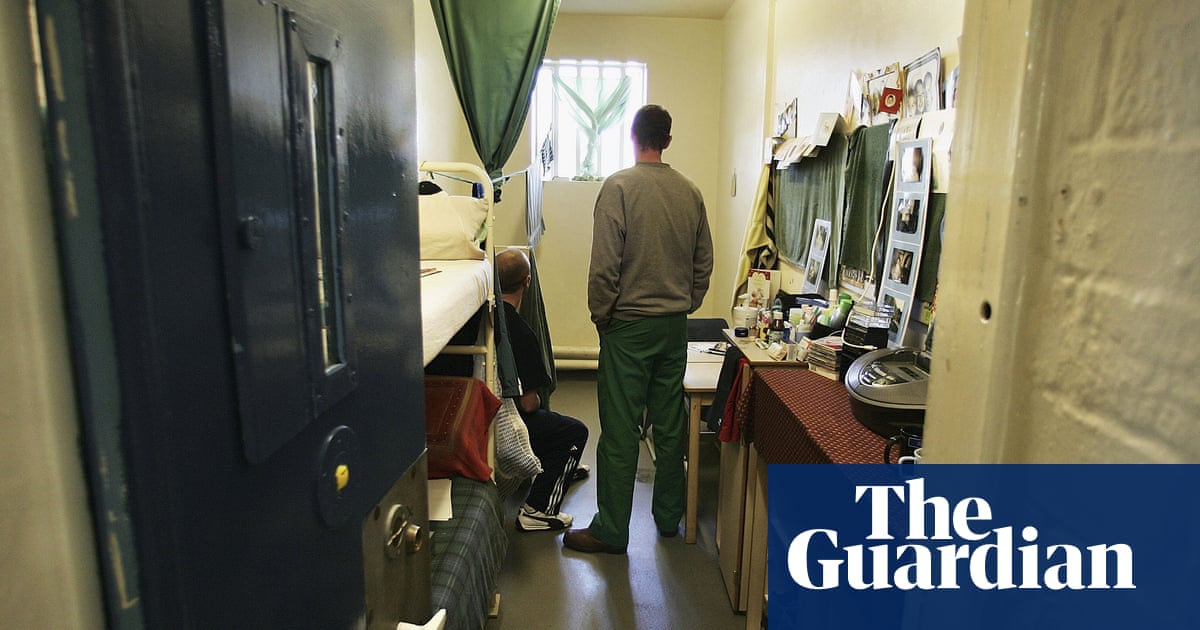Prisoners will be able to earn their freedom after serving a third of their sentences under new minimum and maximum sentence plans released by the government to tackle the overcrowding in jails.
Offenders inEnglandand Wales will be able to earn early release if they complete work, training or education assignments and demonstrate good behaviour before being freed.
If prisoners fail to behave, they will have to spend longer in jail under changes that will scrap the current automatic early release of offenders 40% of the way through their sentences. Those who fail to adhere to work, training or education assignments will face jail-time limits significantly longer than the current 40% automatic release date.
Government sources have confirmed that the changes, first disclosed by theTelegraph, are part of a package of measures to combat prison overcrowding and will be recommended next week by an independent sentencing review led by David Gauke, the former Tory justice secretary.
The review was commissioned by the justice secretary, Shabana Mahmood, last year afteran overcrowding crisisthat led to thousands of prisoners being released early.
Labour’s existing early-release scheme excludes offenders jailed for sex crimes, terrorism and serious violent crimes carrying more than four years’ imprisonment.
The plans could mean most criminals will benefit from extended sentence discounts, including some violent offenders, fraudsters, drug dealers and burglars.
Greater pressure will be placed on the Probation Service which is already under great strain.
Thousands of criminals will instead be tagged and released into the community. Ministers remain concerned by thetagging outsourcing firm Serco, which has been repeatedly fined for serious failings.
Sign up toHeadlines UK
Get the day’s headlines and highlights emailed direct to you every morning
after newsletter promotion
The proposed changes are modelled on schemes introduced in Texas in 2011 to tackle overcrowding, in which prisoners earn earlier parole hearings by accruing “good behaviour” credits through working from 9am to 5pm every weekday and maintaining a clean disciplinary record.
The most motivated inmates in Texas can get parole up to a quarter of the way through their sentence by earning 30 days off their prison term for every 30 days they have served in jail. The reforms have been credited with cutting prisoner reoffending rates and reducing crime to levels last seen in the late 1960s.
Under the UK model, well-behaved offenders would serve a third of their sentence in jail, followed by a third on “enhanced” licence where they would be subject to electronic tags, curfews and have their passports confiscated. A final third would be on normal licence where breaches result in recalls to jail.
Gauke is expected to support the further rollout of specialist courts to break addictions of prolific offenders.
Intensive supervision courts have been set up for female offenders in three pilots across England andWales. Offenders are asked to return regularly to the court to check they are abiding by the requirements of their community sentence. Probation officers, staff from a women’s centre and members of a mental health team are also on hand to discuss the offenders and their progress, he said.
Gauke has previously expressed support for an intermediate court between magistrates and crown court, in which the bench consists of a district judge sitting with two magistrates.
Jails in England and Wales were holding 88,087 inmates on Monday, with headroom of 1,355 places.
A Ministry of Justice spokesperson said: “This government inherited a justice system in crisis, with prisons days from collapse.David Gaukeis conducting a sentencing review to ensure that we never run out of prison places again, and we are committed to reforming sentencing to ensure our prisons cut crime and keep the public safe.”
